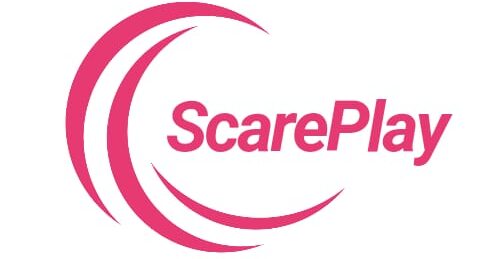U-Haul is a well-known name in the moving and storage industry, providing a wide range of services including truck rentals, storage units, and moving supplies. The U-Haul Dealer Network plays a crucial role in extending the company’s reach and service capabilities. This article delves into the U-Haul Dealer Network, examining its structure, benefits, and the role it plays in U-Haul’s overall business strategy.
What is the U-Haul Dealer Network?
The U-Haul Dealer Network consists of a network of independent businesses that partner with U-Haul to offer its products and services. These dealers operate under the U-Haul brand and provide various U-Haul services, including truck and trailer rentals, self-storage, and moving supplies.
**1. *Structure and Functionality:*
- Independent Businesses: Dealers are usually small to medium-sized businesses that integrate U-Haul’s services into their existing operations. These can include gas stations, auto repair shops, and even retail stores.
- Service Offerings: Dealers typically offer a range of U-Haul services, including vehicle rentals, storage solutions, and moving supplies, making it convenient for customers to access U-Haul services at multiple locations.
- Support and Training: U-Haul provides support and training to its dealers to ensure they are equipped to handle U-Haul products and services effectively. This includes marketing support, operational training, and customer service guidelines.
Benefits of the U-Haul Dealer Network
**1. *For Dealers:*
- Increased Foot Traffic: Partnering with U-Haul can drive additional customers to a dealer’s business, as customers seeking moving services may also use the dealer’s primary products or services.
- Revenue Generation: Dealers earn commissions or rental income from U-Haul services, providing an additional revenue stream without significant upfront investment.
- Brand Association: Being associated with the U-Haul brand can enhance a dealer’s credibility and attract more customers who trust the U-Haul name.
**2. *For U-Haul:*
- Expanded Reach: The dealer network allows U-Haul to extend its service coverage without having to establish its own locations in every market. This broadens U-Haul’s geographic reach and accessibility.
- Local Expertise: Dealers often have a deep understanding of their local markets, which can help U-Haul better cater to regional customer needs and preferences.
- Operational Efficiency: By leveraging existing businesses, U-Haul can efficiently manage and expand its service offerings without the overhead costs associated with operating its own locations.
How to Become a U-Haul Dealer
**1. *Application Process:*
- Initial Inquiry: Prospective dealers must first inquire about the opportunity by contacting U-Haul’s dealer development department or visiting the U-Haul website.
- Evaluation: U-Haul evaluates potential dealers based on various criteria, including business location, capacity to handle U-Haul services, and alignment with U-Haul’s operational standards.
- Agreement: Once approved, a formal agreement is signed, outlining the terms of the partnership, including service expectations, financial arrangements, and operational guidelines.
**2. *Requirements and Expectations:*
- Facilities: Dealers must have adequate space to accommodate U-Haul vehicles and equipment, as well as facilities for customer service.
- Staff Training: Dealers are required to undergo training provided by U-Haul to ensure they can effectively manage U-Haul services and support customers.
- Compliance: Dealers must adhere to U-Haul’s operational and branding standards to maintain consistency across the network.
Challenges and Considerations
**1. *Operational Management:*
- Service Quality: Maintaining consistent service quality across a diverse network of independent dealers can be challenging. U-Haul must ensure that dealers meet its standards and provide a reliable customer experience.
- Inventory Management: Dealers must manage the inventory of U-Haul vehicles and equipment efficiently, balancing availability with demand.
**2. *Brand Control:*
- Consistency: Ensuring that all dealers maintain the U-Haul brand image and adhere to operational guidelines is crucial for maintaining brand integrity and customer trust.
- Customer Experience: U-Haul must address any issues or complaints that arise from dealer operations to protect its reputation and ensure a positive customer experience.
The Future of the U-Haul Dealer Network
**1. *Expansion Plans:*
- Geographic Reach: U-Haul continues to expand its dealer network to cover new markets and regions, enhancing its service availability and convenience for customers.
- Technological Integration: Future developments may include integrating advanced technology solutions to streamline operations, improve customer service, and enhance inventory management.
**2. *Partnership Opportunities:*
- Diverse Partnerships: U-Haul is likely to seek partnerships with a diverse range of businesses to broaden its network and cater to different customer needs.
- Enhanced Support: U-Haul may continue to enhance its support and training programs for dealers to ensure they are well-equipped to deliver high-quality services.
Conclusion
The U-Haul Dealer Network is a vital component of U-Haul’s business model, enabling the company to extend its services across a broad geographic area while leveraging the resources and local expertise of independent businesses. For dealers, the partnership offers opportunities for increased revenue and brand association, while for U-Haul, it provides a cost-effective way to expand its reach and service offerings.
As U-Haul continues to grow and adapt to changing market conditions, the dealer network will play a crucial role in its strategy for maintaining and enhancing its position in the moving and storage industry. By fostering strong partnerships and ensuring consistent service quality, U-Haul aims to provide exceptional value to both its customers and dealer partners.
